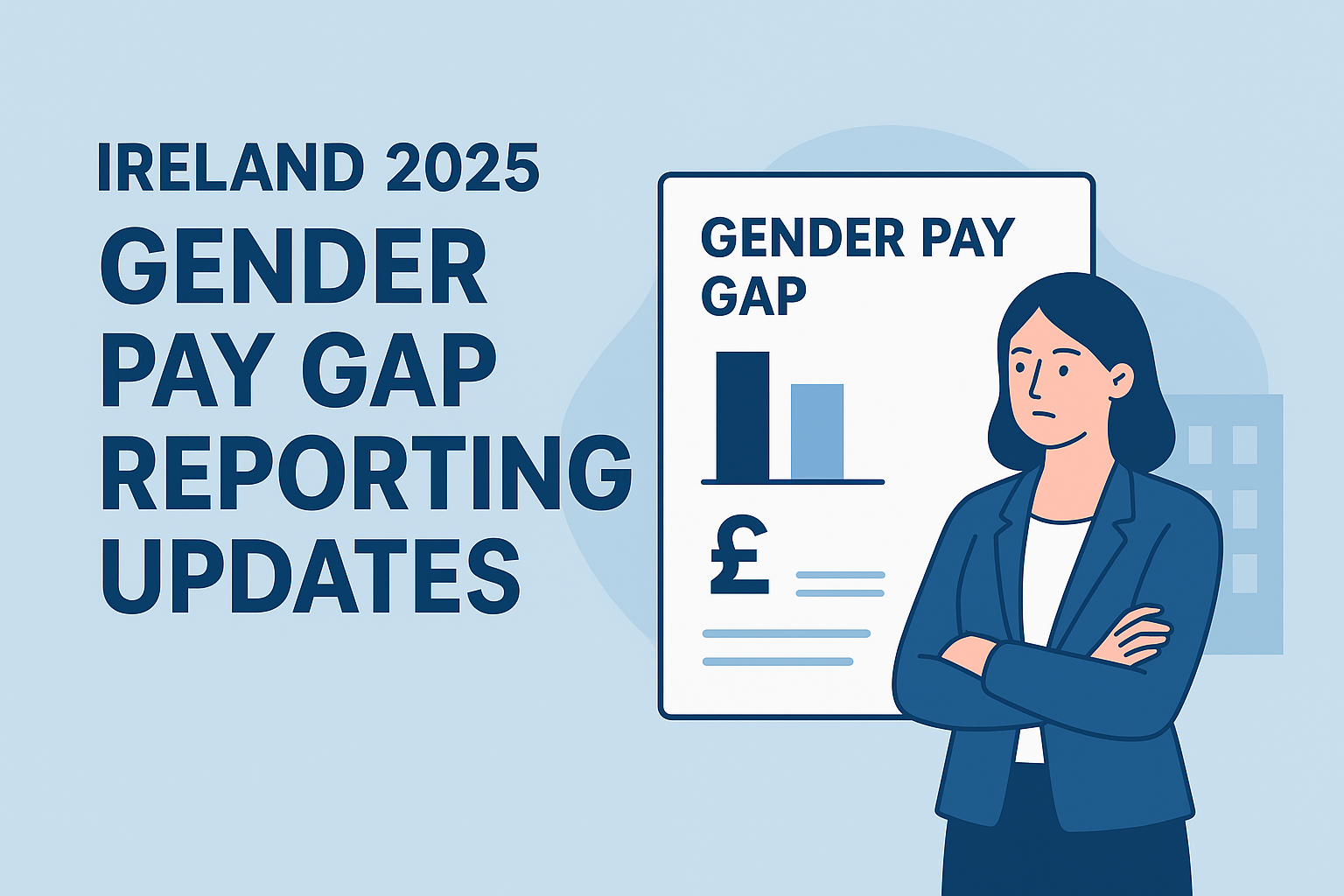No-Fault Dismissals and Fair Procedures in Irish Employment Law
Introduction
The recent High Court decision in Philip Nolan v. Science Foundation Ireland [2024] IEHC 368 has reaffirmed the boundaries of “no-fault dismissals” and clarified the extent to which employers must adhere to fair procedures when terminating employment. While employers retain the right to dismiss employees based on contractual provisions, this case underscores the importance of transparency and procedural clarity—particularly where employee conduct has been questioned.
What Is a No-Fault Dismissal?
A “no-fault dismissal” refers to the termination of employment that is not based on allegations of misconduct but instead arises from an employer’s contractual right to terminate with notice, without attributing blame. These dismissals do not trigger the same procedural fairness requirements that apply in disciplinary contexts where allegations of wrongdoing are in play.
However, where fair procedures have not been applied, a key legal consideration is whether an employee can obtain an injunction to prevent or restrain the termination. In Maha Lingam v HSE [2005] IESC 89, the Supreme Court confirmed that the threshold for such interim relief is high. The employee must demonstrate not only a fair question to be tried, but also a strong case likely to succeed at trial. The courts have consistently shown a reluctance to intervene in cases of termination unless there is persuasive evidence that procedural safeguards were required and unjustifiably denied.
This judicial position underscores the delicate balance employers must strike when relying on no-fault dismissal clauses. While contractually valid, such dismissals often involve no investigation, hearing, or opportunity for the employee to respond—factors that may expose employers to claims of unfair dismissal under the Unfair Dismissals Acts 1977–2015, where employee has acquired sufficient service to qualify for protection – being 12 months continuous service.
To limit this exposure, employers typically reserve no-fault dismissals for employees with less than 12 months’ service, who are not yet entitled to bring claims under the Acts. Nonetheless, this strategy carries residual legal risk. Even short-service employees may seek alternative relief, most notably interim injunctions, where there is a credible assertion that the termination is, in substance, disciplinary—or connected to a protected disclosure, discrimination claim, or health and safety issue. In such instances, the court may look beyond the employer’s stated justification and assess the true nature of the dismissal.
Background to the Nolan Case
In early 2024, the Board of Science Foundation Ireland (SFI) decided to terminate the employment of its Director General, Professor Philip Nolan. This decision followed a contentious period marked by deteriorating relations between Nolan and the Board, alongside serious internal concerns. A preliminary investigation had been conducted into five protected disclosures submitted by senior staff members, which alleged misconduct—including bullying and breaches of corporate governance.
While the investigation concluded that Nolan’s conduct did not amount to bullying within the meaning of SFI’s internal policies, it did find that in two instances his behaviour was at the upper scale of inappropriate conduct, suggesting that he might have a case to answer. The report recommended convening a disciplinary hearing, though no such hearing was initiated. Instead, Nolan went on sick leave, during which details of the investigation were leaked to the media.
Upon his return, Nolan sent an email to all staff, stating that the allegations made against him had not been upheld. Shortly thereafter, on 27 May 2024, the Board terminated his employment on a no-fault basis. In the termination letter, the Board referred to the recommendations of the investigation report and stated that while it had opted not to initiate a disciplinary process, it could also not “ignore the breakdown in the relationship”. It concluded that it was no longer in either party’s interest for the employment to continue.
On 30 May 2024, Nolan obtained a short-term interim injunction restraining SFI from acting further on the dismissal. At the interlocutory hearing, he argued that his dismissal was substantively linked to the earlier allegations of misconduct and that he had been denied fair procedures. In response, SFI contended that the dismissal was effected in accordance with its contractual right to terminate with notice, and that because no disciplinary process had been convened, the termination was not misconduct-based.
This raised a critical legal question: was the dismissal truly a no-fault termination, or was it, in substance, disciplinary in nature? If the latter, Nolan would have been entitled to the protections of fair procedures under well-established legal principles.
The Legal Framework: When Do Fair Procedures Apply?
Irish law draws a distinction between:
- Misconduct-related dismissals: Require strict adherence to fair procedures (investigation, hearing, opportunity to respond).
- Contractual or no-fault dismissals: Do not require such procedures, provided they are genuinely non-disciplinary in nature.
The following cases provide guidance:
- O’Donovan v Over-C Technology Ltd [2021] IECA 37: Fair procedures are not required for terminations based on “poor performance” rather than misconduct.
- Carroll v Bus Átha Cliath [2005] IEHC 1: Reinforced that procedural fairness is essential only in misconduct cases.
- Naujoks v Institute of Bioprocessing Research [2006] IEHC 358: Employers cannot invoke contractual terms to avoid fair procedures if the dismissal is truly misconduct-based.
- Grenet v Electronic Arts Ireland Ltd [2018] IEHC 786: Courts will look beyond the employer’s stated reason and examine the substance of the dismissal.
High Court Ruling in Nolan
Justice Mulcahy held that Professor Nolan had not established a sufficiently strong case that his dismissal was based on misconduct. While there were clear tensions and concerns regarding dysfunction within the organisation, there was insufficient evidence to conclude that the dismissal was substantively disciplinary in nature.
The Court acknowledged that the characterisation of the dismissal as “no-fault” sat uneasily with the content of the termination letter and SFI’s affidavits, both of which referenced several instances of alleged dysfunction under Nolan’s leadership. However, even if these issues were accepted at face value, the judge concluded that the alleged deficiencies pointed more towards poor performance than misconduct.
Justice Mulcahy also recognised the difficulty in drawing a clear line between allegations of misconduct and allegations of poor performance. He accepted that not only misconduct can have reputational consequences. However, he cautioned against reversing the logic established in O’Donovan v Over-C Technology Ltd, noting that it is the reason for the dismissal—not its reputational impact—that determines whether fair procedures are required.
Ultimately, the Court found that while the circumstances of the dismissal may have been reputationally damaging, there was no sufficient evidence that the dismissal was for misconduct, and therefore no automatic entitlement to fair procedures arose. As a result, Professor Nolan failed to meet the high threshold for interlocutory relief, and the injunction was not continued.
Employer Spotlight: Ensuring Valid No-Fault Dismissals
To mitigate the legal and reputational risks associated with no-fault terminations, employers should adopt the following practical safeguards. These measures are particularly important in light of recent High Court guidance, which reinforces the need to ensure that no-fault dismissals are genuine, procedurally robust, and legally defensible.
✅ 1. Embed Strong Contractual Language
- Include a clear and unambiguous contractual clause permitting termination with notice (or pay in lieu), without the need to establish fault.
- Ensure the employee signs the contract acknowledging this right at the outset of employment.
✅ 2. Be Consistent in Communications
- Avoid referencing prior allegations, behavioural issues, or performance concerns when invoking a no-fault dismissal.
- Draft termination letters with care, ensuring the rationale aligns with the stated no-fault basis. Inconsistencies may invite scrutiny or recharacterisation of the dismissal.
✅ 3. Make Statutory Payments Promptly
- Provide payment in lieu of notice and settle all statutory entitlements without delay.
- Ensure that the contract includes an express right to pay in lieu, to avoid breach of contract claims.
✅ 4. Limit Post-Termination Rights
- State clearly in both the employment contract and termination correspondence that no right of appeal applies where dismissal is not for misconduct.
- This helps manage expectations and narrows the procedural grounds upon which claims can be based.
✅ 5. Check for Protected Classifications or Triggers
Before proceeding, confirm the employee:
- Has less than 12 months’ service (to limit exposure under the Unfair Dismissals Acts 1977–2015);
- Has not made a protected disclosure (whistleblowing);
- Has not raising health & safety complaints; and
- Has not covered under any of the nine discriminatory grounds under the Employment Equality Acts.
⚠️ Note: Even where unfair dismissal protections do not apply, employees may seek injunctive relief if there is evidence that the dismissal was, in substance, related to misconduct or another protected category. Employers must ensure that no-fault dismissals are not used as a pretext to avoid fair procedures.
This article was drafted by Stephen Barry (Trainee) and Robin Hyde (Partner).










